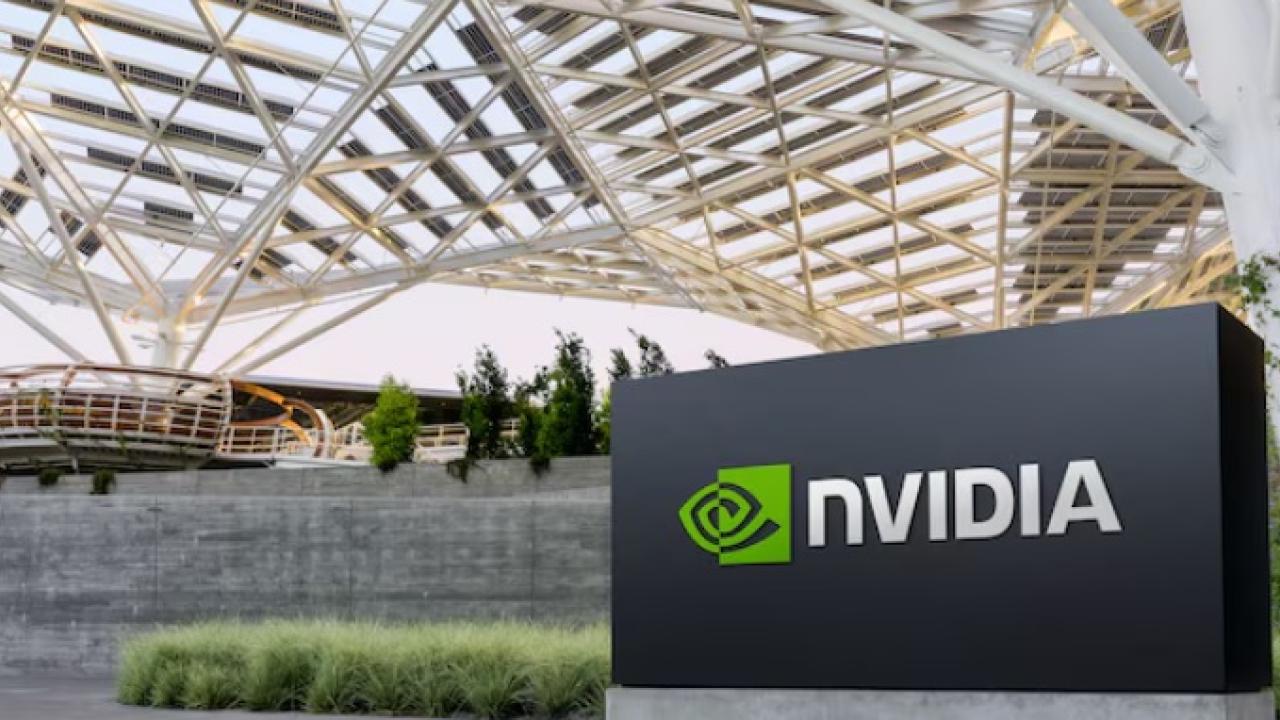
For the quarter, GAAP diluted earnings per share were $0.67, up 12% from the prior quarter and up 168% from a year ago. Non-GAAP diluted earnings per share were $0.68, up 11% from the prior quarter and up 152% from a year ago.
NVIDIA today reported revenue of $30 billion for the second quarter ended July 28, 2024, up 15% from the previous quarter and 122% from a year ago.
Nvidia’s market value has soared thanks to its dominance of the computing hardware that underpins artificial intelligence. The stock price has risen by nearly 3,000% since 2019 and, with a market capitalisation of $3.2 trillion, a move in its share price affects the broader market.
According to the company's website, GAAP diluted earnings per share for the quarter were $0.67, up 12% from the prior quarter and 168% from a year ago. Non-GAAP diluted earnings per share were $0.68, up 11% from the prior quarter and 152% from a year ago.
“Demand for Hopper remains strong and the anticipation for Blackwell is incredible,” said Jensen Huang, founder and CEO of NVIDIA. “NVIDIA delivered record revenue as global data centers are working at full speed to modernize the entire computing stack with accelerated computing and generative AI.”
On its website, NVIDIA highlights: “Blackwell samples are now shipping to our partners and customers. Spectrum-X Ethernet for AI and NVIDIA AI Enterprise software are two new product categories that achieve significant scale, demonstrating that NVIDIA is a full-stack, data center-scale platform. Across the stack and ecosystem, we’re helping power edge modelers, power consumer internet services, and now, enterprises. Generative AI will revolutionize every industry.”
During the first half of fiscal 2025, NVIDIA returned $15.4 billion to shareholders in the form of repurchased shares and cash dividends. At the end of the second quarter, the company had $7.5 billion remaining under its share repurchase authorization.
On August 26, 2024, the Board of Directors approved an additional $50 billion share repurchase authorization, with no expiration. In addition, NVIDIA will pay its next quarterly cash dividend of $0.01 per share on October 3, 2024, to all shareholders of record on September 12, 2024.
MARKET REACTIONS
These are the company's figures. But the interpretation of these figures varies depending on who you ask.
For Axios analysts, for example, Nvidia has become synonymous with AI, but that doesn't mean it can relax. Its peers, startups, and even its own customers are increasingly trying to encroach on its territory.
Nvidia's main GPU rival, AMD, has just agreed to acquire ZT Systems to boost its engineering brainpower.
Meanwhile, other chip design and AI startups like Cerebras, d-Matrix and Groq have been raising hundreds of millions of dollars in venture capital.
And tech giants Microsoft, Meta, Amazon, Alphabet and OpenAI — all buyers of Nvidia's upcoming Blackwell platform processors — have been working on their own domestically manufactured chips.
"Despite this intensified race in the AI chip game, Nvidia is under investigation by the US Department of Justice over whether it has abused its dominant market position," the financial outlet said.
Analysts such as Ryan Detrick, chief market strategist at Carson Group, said: "The problem is that this time the size of the growth was much smaller than what we have been seeing."
Quoted by Reuters , Detrizk said, "Forward guidance was even raised, but again not at the same pace as in previous quarters. This is a great company that continues to grow revenue at a 122% clip, but it seems the bar was set a little too high this earnings season."
In Chile, the stockbroker Renta4 believes the market was anxious about Nvidia's results.
This was reflected in the fact that on the eve of the results, its shares fell by 2.10% to US$ 125.51 per ADR. Now, with revenues of more than US$ 30 billion, above the US$ 28.8 billion expected by the market, while at the bottom line, that is, regarding Net Income per Share, it reached US$ 0.68, also above the US$ 0.64 per share, "which was already the highest EPS."
"The company's results were positive for the quarter, and for this reason there was a fear that even if the results were good, they were not as good as expected. Finally, the results obtained by this company give optimism to the markets regarding the growth of companies related to artificial intelligence (AI), since this had been questioned a few weeks ago when Intel's results disappointed the market and the stock fell by around 25%," Guillermo Araya, from Renta4, told AméricaEconomía.
Meanwhile, Cristián Correa Urrutia, CTO and Founder of the consulting firm SocialWeb, believes that, despite the solid revenue growth reported by NVIDIA, driven mainly by the growing demand in data centers and artificial intelligence, "the confluence of macroeconomic factors and uncertainty about the financial stability of key clients such as OpenAI have generated volatility in the markets and this is reflected in NVIDIA's shares falling today."
For the professor of Innovation and Entrepreneurship at the Department of Computer Science at the Federico Santa María University (UTFSM), "NVIDIA's high dependence on artificial intelligence, which faces pressure from rising costs and fierce competition, could have generated doubts among investors about the sustainability of recent growth."
While NVIDIA's financial results have been positive, the recent drop in shares can be attributed to several global factors, including adjustments in Japan's monetary policy and OpenAI's delicate financial situation.
"OpenAI could potentially face serious difficulties, with projections of a possible bankruptcy by the end of 2024, which has raised concerns about continued high demand for GPUs by large customers such as OpenAI. This, in turn, could have negatively affected investor perceptions of NVIDIA's long-term growth prospects. In addition, the recent increase in interest rates in Japan could have motivated investors to reassess their risk exposure, triggering massive sell-offs in technology stocks, including NVIDIA," concludes Urrutia.










